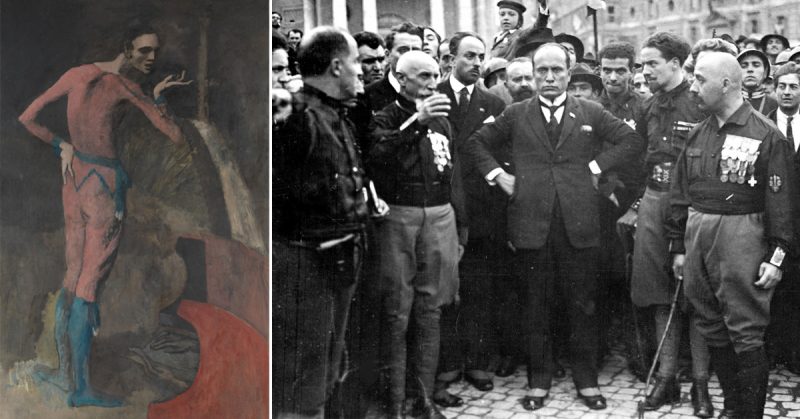Pablo Picasso’s “The Actor,” a masterpiece from the artist’s Rose Period is part of the Metropolitan Museum of Art’s collection. Recently, the great-grandniece of Paul Leffmann sued the museum to have it returned.
Leffmann was a Jewish industrialist in Germany who was forced to sell the painting under duress from Nazi and Fascist persecution in 1938.
Laurel Zuckerman handles the estate for Leffmann’s widow, Alice. She is seeking the return of the painting or over $100 million in damages.
She is part of a movement of people seeking the return of art that was taken or forcibly sold once the Nazis rose to power in Germany.
The Met has issued a statement saying that it has “indisputable title” to “The Actor” and will defend its rights.
According to Zuckerman, Leffmann sold the painting to two art dealers for $12,000 in order to pay for an escape to Switzerland from persecution in Benito Mussolini’s fascist government in Italy. He and his wife had fled to Italy from Germany the year before.
They fled after a visit to Italy from Adolf Hitler showed that Jews in that country were in danger with no time left to act, according to the complaint.
The Met acquired “The Actor” as a donation in 1952. They did not properly investigate its provenance at the time and incorrectly cataloged the painting for decades before recognizing Leffmann’s ownership and sale in 2011.
Zuckerman learned about the painting in 2010 and demanded that it be returned. An agreement between the two parties that put the case on hold recently expired.
Lawrence Kaye is a lawyer for Zuckerman. He states that European tribunals have been ordering the return of artwork sold under duress in Europe during the 30s and 40s. This has been less common in the United States.
“We believe the painting is tainted by the history of the Holocaust, and the Leffmanns, given the circumstances under which they sold it, never lost title,” he said.
The Met has responded that its research shows that “The Actor” was not sold under duress. Part of the reason is that Leffmann sold the painting in Paris at a fair price.
“While the Met understands and sympathizes deeply with the losses that Paul and Alice Leffmann endured during the Nazi era, it firmly believes that this painting was not among them,” it said.
The Leffmanns settled in Zurich and eventually died there.
According to the Met’s website, “The Actor,” depicting a tall and gaunt male figure, is the painting that marks the end of Picasso’s infatuation with the wretched and the beginning of him paying attention to the theatrical world, Reuters reported.
The painting was in the news in January 2010 when a student lost her balance and fell, causing a six-inch tear in the canvas. The painting was since repaired.
The case is Zuckerman v Metropolitan Museum of Art, U.S. District Court, Southern District of New York, No. 16-07665.
